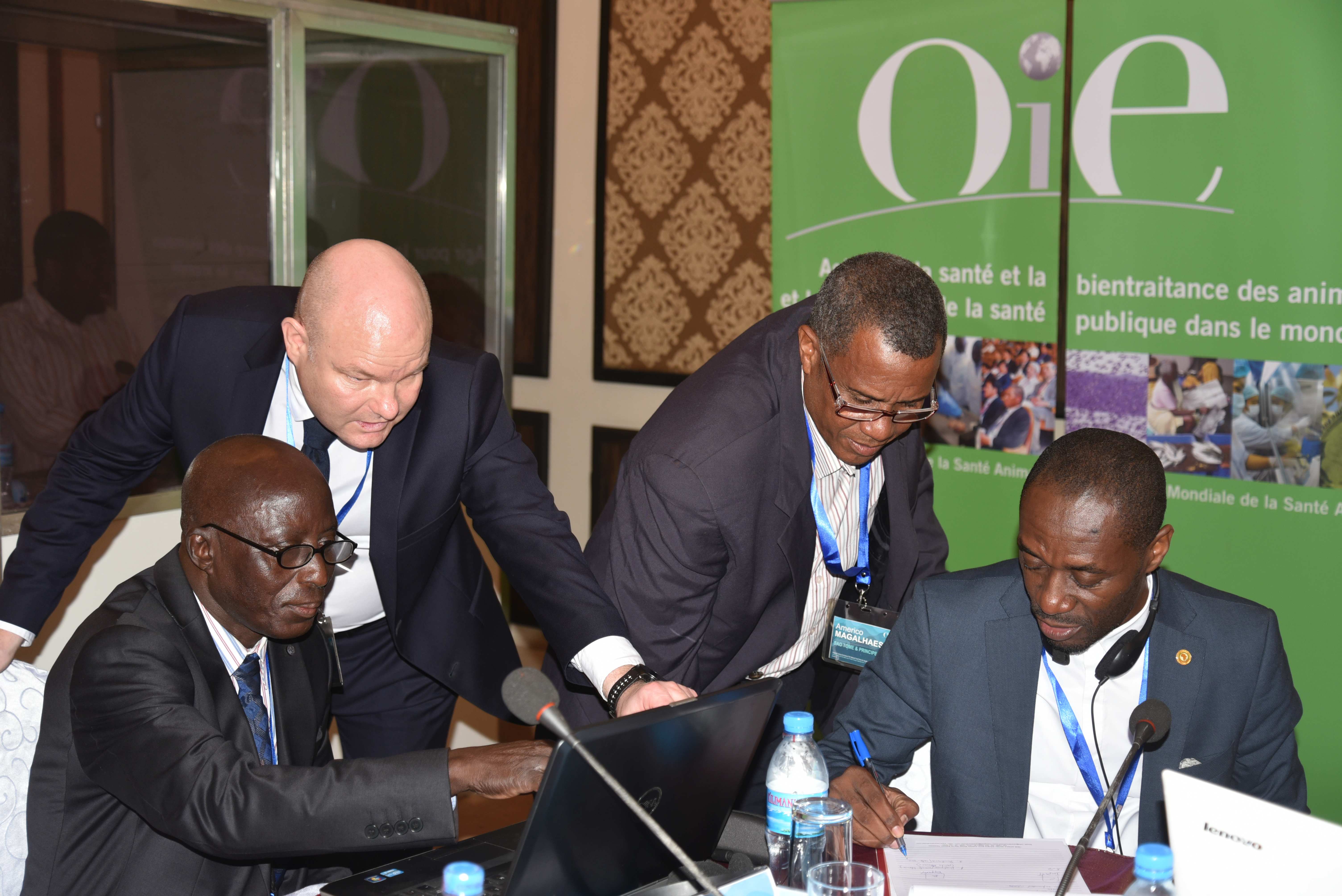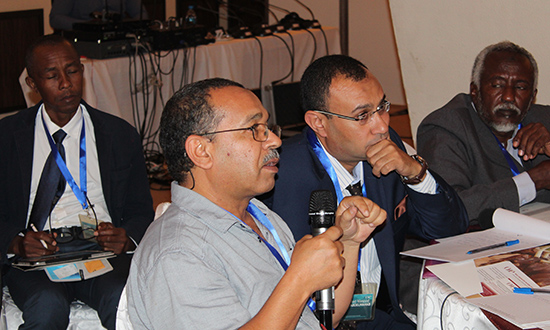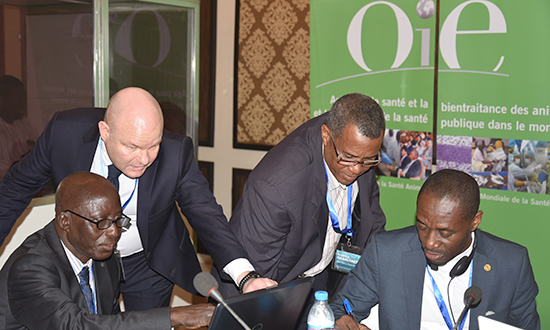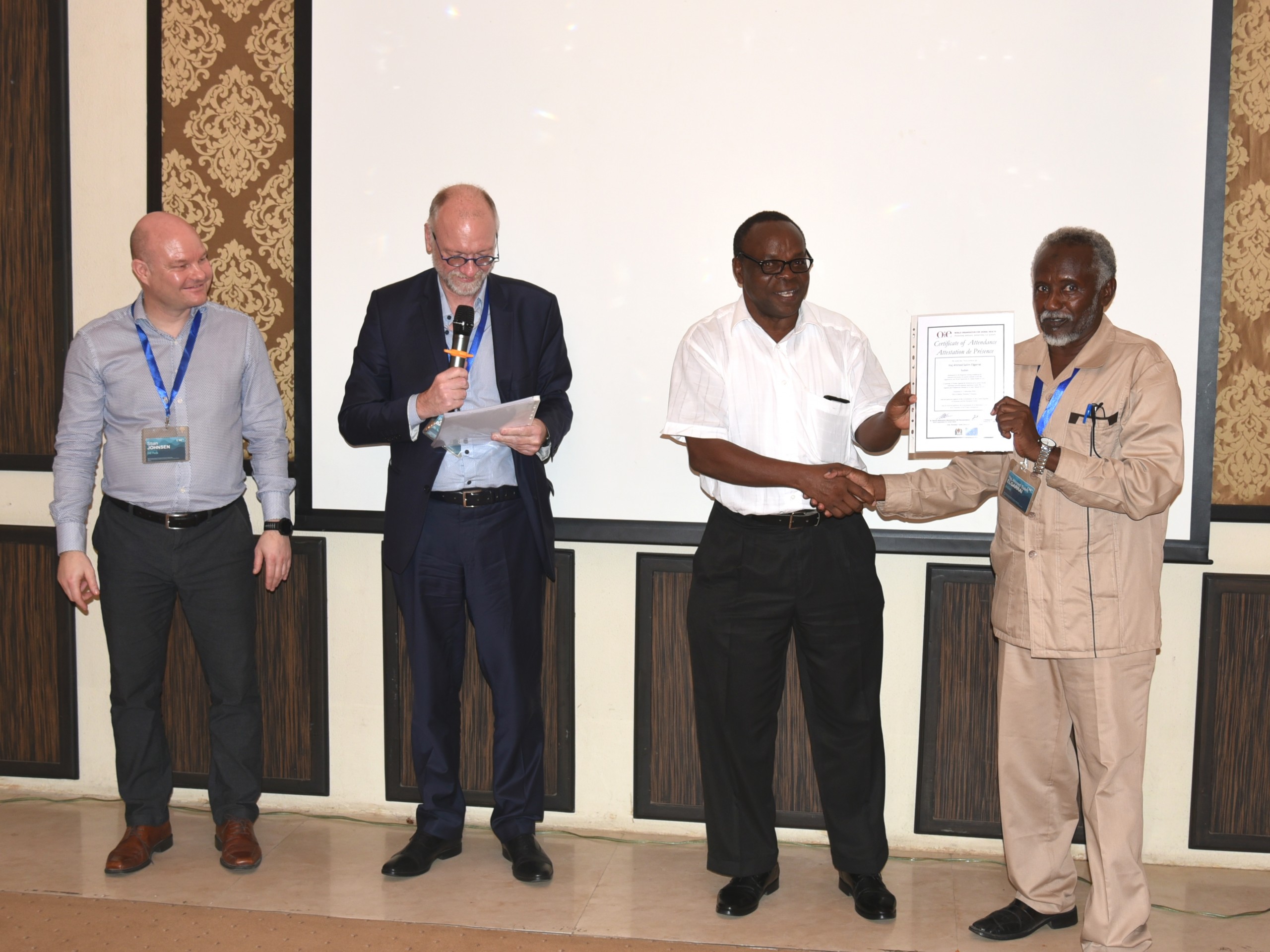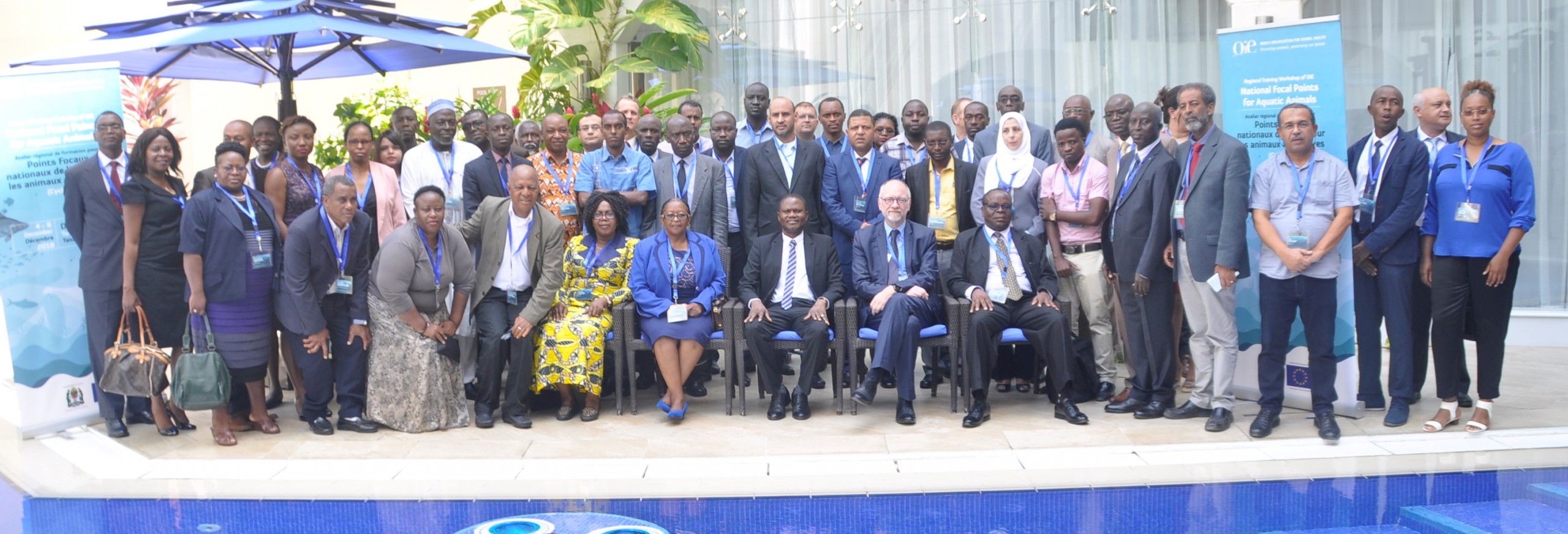
Dar es Salaam hosts OIE training workshop on aquatic animal health, focus on emerging freshwater fish diseases in Africa and how to tackle them through rigorous biosecurity
This third cycle training workshop intended to provide refresher training to existing focal points, bring recently appointed focal points up to speed (in respect of recently approved changes to the OIE standards and listed and de-listed diseases) and provide guidance on emerging issues of relevance to the African continent, such as the re-emergence of EUS in Central Africa, and the international spread of TiLV into the African continent.
The seminar was held in the economic capital of Tanzania, Dar es Salaam, and was attended by national OIE Delegates and OIE Focal Points for aquatic animals from 41 African countries, including Algeria, Benin, Botswana, Burkina Faso, Burundi, Cabo Verde, Cameroon, Central African (Rep.), Comoros, Cote d’Ivoire, Djibouti, Egypt, Equatorial Guinea, Eritrea, eSwatini (Swaziland), Gabon, Ghana, Guinea, Guinea-Bissau, Kenya, Lesotho, Libya, Mauritania, Mauritius, Morocco, Mozambique, Namibia, Niger, Sao Tome and Principe, Senegal, Seychelles, Sierra Leone, Somalia, South Sudan, Sudan, Togo, Tunisia, Uganda, Zambia, Zimbabwe and the host country : Tanzania. In addition, one regional economic community had dispatched one of its aquaculture officers : the West African Economic and Monetary Union (WAEMU / UEMOA), based in Ouagadougou.
Besides OIE regional staff (Gaborone, Nairobi) and head office staff (Standards Department, Paris), contributions were made by five regional and international experts (in alphabetical order) : Kevin Christison (South Africa), David Huchzermeyer (South Africa), Nelly Isyagi (Uganda), Marc Le Groumellec (France/Madagascar) and Edmund Peeler (UK). The opening ceremony was held at the New Africa Hotel in downtown Dar es Salaam and was officiated by the Principal Secretary, Dr Rashid Tamatamah, on behalf of the Hon. Minister of Livestock and Fisheries, H.E. Luhaga Joelson Mpina, alongside Dr. Patrick Bastiaensen (on behalf of the OIE Regional Representative for Africa) and Dr Osewe Owuory Kajitanus, Assistant Director of Aquaculture Services, on behalf of the OIE Delegate of Tanzania.
The training course, held more than 6 years after the last (second) cycle training in Ghana, went back to basics, focusing on the OIE standards and reporting requirements (Aquatic Code, Aquatic Manual, Guidelines on Aquatic Animal Health Surveillance), with a strong emphasis on securing safe international trade through reliable certification, stringent biosecurity and transparency and trustworthiness in the reporting (notification) of aquatic animal diseases, undoubtedly severely underreported in Africa today. Many of the case studies evolved around the main contemporary threats to the aquaculture industry in Africa today : Epizootic Ulcerative Syndrome (EUS, or infection with A. invadans) and Tilapia Lake Virus (TiLV) in freshwater finfish, and White Spot Syndrome Virus (WSSV) in penaeid shrimp.
Besides the lectures delivered by outstanding regional and international experts, OIE National Focal Points had ample time to discuss operational issues, related to the daily interactions with the industry, the scientific community and e.g. the OIE Delegates, usually directors of veterinary services, in their countries. Several simulation exercises allowed Focal Points to mimic their response in terms of import requirements to the sanitary situation in an exporting country. In respect of (under)reporting, OIE National Focal Points insisted on the usefulness of being able to be taught to prepare and submit disease reports directly to the OIE World Animal Health Information System (WAHIS), but also pointed out that under-reporting is most often the result of lack of data, given the widespread absence of diagnostic capabilities in African countries.
The training included a visit to a mid-size, family-run, aquaculture farm (tilapia and catfish hatchery) west of the Dar es Salaam, where coincidentally an outbreak of black spot disease (fish fluke disease or diplopstomiasis) is currently being managed through appropriate measures of biosecurity and compartmentalisation.
The OIE is grateful for the logistical support of the Government of the United Republic of Tanzania, and in particular of its OIE National Focal Point, Hamisi Nikuli, in making this seminar a success. This seminar was funded through a European Parliament grant, managed by the European Commission Delegation in Nairobi, which funds the Strengthening Veterinary Services in Developing Countries (SVSDC) project
Marc Le Groumellec, OIE Aquatic Animal Health Expert, Madagascar
All pictures (c) O. Valsson (oie) 2018, unless mentioned otherwise.
.
